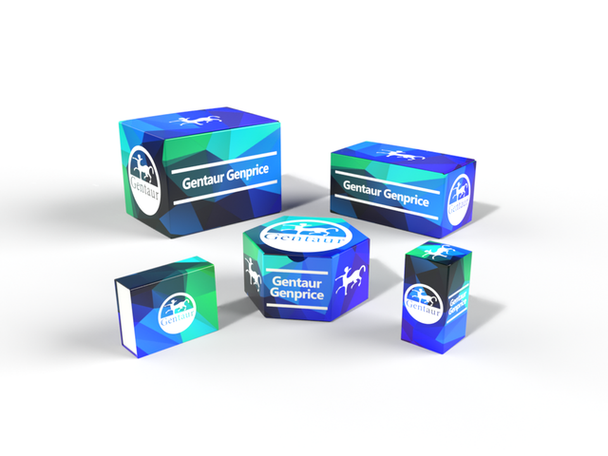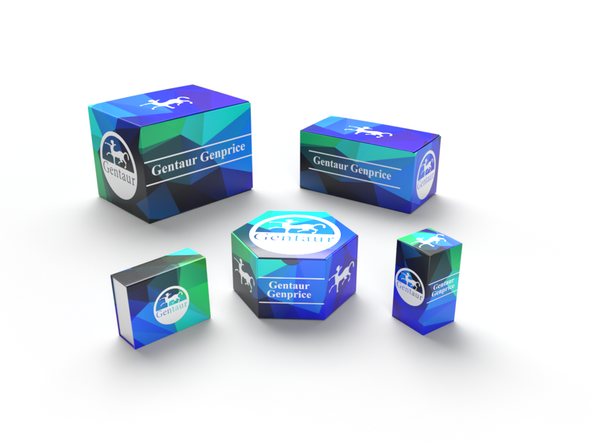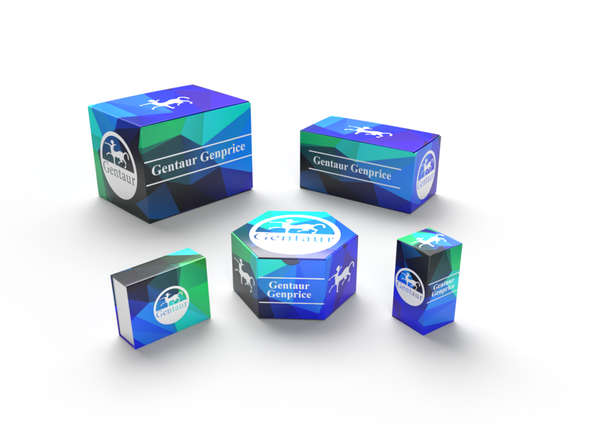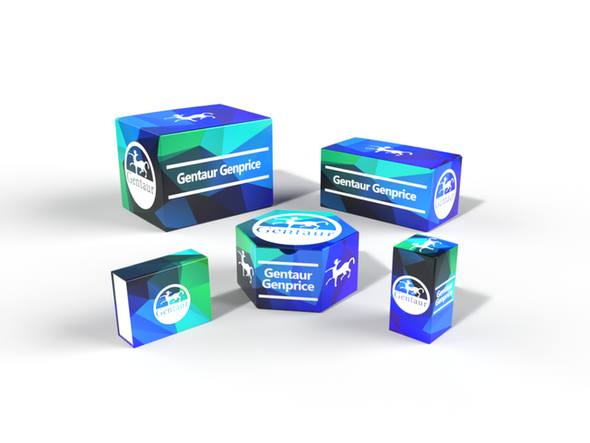749
Human Kappa-casein (CSN3) ELISA Kit | KTE62271
- SKU:
- 749-KTE62271
- Availability:
- Usually ships in 5 working days
Description
Human Kappa-casein (CSN3) ELISA Kit | KTE62271 | Gentaur UK, US & Europe Distribution
Application: This Human Kappa-casein (CSN3) ELISA Kit employs a two-site sandwich ELISA to quantitate CSN3 in samples. An antibody specific for CSN3 has been pre-coated onto a microplate. Standards and samples are pipetted into the wells and anyCSN3 present is bound by the immobilized antibody. After removing any unbound substances, a biotin-conjugated antibody specific for CSN3 is added to the wells. After washing, Streptavidin conjugated Horseradish Peroxidase (HRP) is added to the wells. Following a wash to remove any unbound avidin-enzyme reagent, a substrate solution is added to the wells and color develops in proportion to the amount of CSN3 bound in the initial step. The color development is stopped and the intensity of the color is measured.
Detection Method: Colorimetric
Conjugate: N/A
Sample Type: Cell culture supernatants#Serum#Plasma#Other biological fluids
Assay Type: Multiple steps standard sandwich ELISA assay with a working time of 3-5 hours. It depends on the experience of the operation person.
Kit Component: • Human Kappa-casein microplate
• Human Kappa-casein standard
• Human Kappa-casein detect antibody
• Streptavidin-HRP
• Standard diluent
• Assay buffer
• HRP substrate
• Stop solution
• Wash buffer
• Plate covers
Features & Benefits: Human Kappa-casein (CSN3) ELISA Kit has high sensitivity and excellent specificity for detection of Human CSN3. No significant cross-reactivity or interference between Human CSN3 and analogues was observed.
Calibration Range: Please inquire
Limit Of Detection: Please inquire
Usage Note: • Do not mix components from different kit lots or use reagents beyond the kit expiration date.
• Allow all reagents to warm to room temperature for at least 30 minutes before opening.
• Pre-rinse the pipet tip with reagent, use fresh pipet tips for each sample, standard and reagent to avoid contamination.
• Unused wells must be kept desiccated at 4 °C in the sealed bag provided.
• Mix Thoroughly is very important for the result. It is recommended using low frequency oscillator or slight hand shaking every 10 minutes.
• It is recommended that all samples and standards be assayed in duplicate or triplicate.
Storage Instruction: The unopened kit should be stored at 2 - 8°C. After opening, please store refer to protocols.
Shipping: Gel pack with blue ice.
Precaution The product listed herein is for research use only and is not intended for use in human or clinical diagnosis. Suggested applications of our products are not recommendations to use our products in violation of any patent or as a license. We cannot be responsible for patent infringements or other violations that may occur with the use of this product.
Background: KCA gene extends over 8, 821 nucleotides and consists of 5 exons ranging from 33 to 496 nucleotides separated by introns ranging from 1, 146 to 2, 942 nucleotides. The human and bovine KCA genes are very similar, with a conserved gene organization and observed identities of 81% and 87% for exons 1 and 2, respectively. The human alpha-S1-casein, beta-casein, and kappa-casein genes are closely linked and arranged in that order. The distance between the alpha-S1 and beta and between alpha-S1 and kappa is approximately 10 and 300 kb, respectively. The beta-casein gene is oriented in the opposite direction to the alpha-S1 and kappa genes. By fluorescence in situ hybridization, the casein gene family was localized to 4q21.1.
Alternative Names: CSN3; CSN10; CSNK; KCA;
Search name: CSN3; CSN10; CSNK; KCA;
Tag: CSN3






